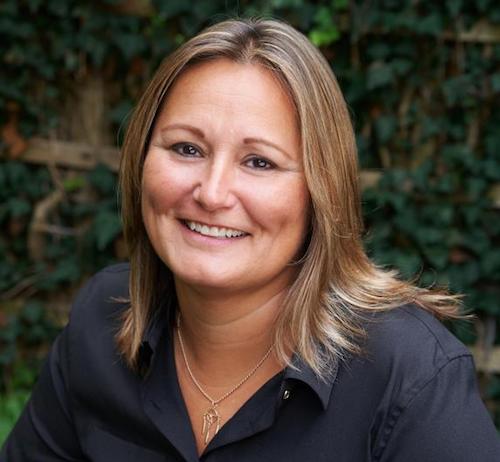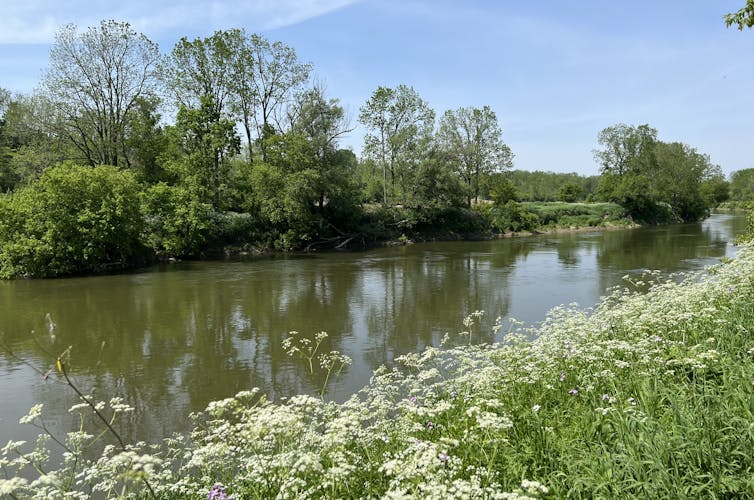To Enhance Consuming Water in First Nation Communities, Collaboration Is Key

By Dr. Brady Deaton, Jr., Division of Meals, Agricultural and Useful resource Economics, and Dr. Sheri Longboat, Rural Planning and Improvement; Brandon Doxtator, environmental session coordinator, Oneida Nation of the Thames; and Prof. Christopher Alcantara, Political Science, Western College
This text is republished from The Dialog Canada beneath a Inventive Commons licence. Learn the unique article.

Just lately, the federal authorities introduced its intention to fulfil its accountability and fund the development of a brand new consuming water pipeline between the Oneida Nation of the Thames and the Lake Huron Main Water Provide System.
An extended-term consuming water advisory has been in impact on the Oneida Public Water System since 2019, affecting neighborhood houses and buildings. For that reason, the federal authorities’s announcement is hopeful information.
A lot of our analysis, which we evaluate on this article, explores the potential of collaborative preparations to enhance consuming water high quality outcomes in First Nations communities.
Water sharing preparations, just like the proposed one between the Oneida Nation of the Thames and the Lake Huron Main Water Provide System, have the potential to reinforce water safety, however they require robust communication and co-ordination between neighborhood leaders along with ample monetary assist.
Key points

In one among our lately revealed papers, we level out that water sharing agreements between Ontario municipalities are commonplace. For instance, York Area receives water from the Metropolis of Toronto.
That mentioned, the commonness of water sharing between Ontario First Nations and municipalities is much decrease than it’s between municipalities.
These variations are related to elements like remoteness. A excessive proportion of First Nations are situated in Northern Ontario and situated comparatively removed from close by communities who might enter right into a water sharing association.
However some First Nations, just like the Oneida Nation of the Thames, have municipal neighbours inside a possible distance, the place water sharing for entry to protected consuming water is a viable possibility.
A number of different First Nations are additionally engaged in related preparations. The Mississaugas of the Credit score First Nation now obtain water from Haldimand County through a connection in Hagersville, Ont. Six Nations of the Grand River have joined on this association with the Mississaugas of the Credit score by means of a boundary watermain. In the meantime, the Mississaugas of Scugog Island First Nation are collaborating with Durham Area relating to the potential to service Port Perry.
Optimistic results of water sharing agreements
In a latest article we discover a optimistic affiliation between enhanced consuming water high quality and Indigenous-municipal consuming water preparations in Ontario.
Utilizing historic information, and controlling for a lot of elements, we discover that First Nation consuming water techniques in Ontario are extra doubtless than municipal water techniques to expertise a consuming water advisory.
Nevertheless, the presence of water sharing preparations between First Nation techniques and close by municipalities are related to reductions within the probability {that a} First Nation water system will expertise a consuming water advisory.
It is a welcome end result for all communities.
Partnerships past water

Indigenous-local intergovernmental partnerships should not restricted to water.
There are quite a few sorts of agreements for neighborhood providers that exist between First Nations and municipalities. These agreements embrace hearth safety, trash assortment, animal management and co-ordinated efforts to recruit medical professionals to serve the communities.
The success of those agreements, in addition to the water sharing ones, depends on the acknowledgement of the distinctive histories and aspirations of the communities and the governments earlier than exploring any partnership.
This consists of an appreciation of the nation-to-nation relationship between First Nations and the federal authorities, Indigenous rights and autonomy, cultural variations, funding, long-term sustainability of the initiatives and a number of financial issues, like the prices to implementing and growing any authorized contract.
Path to a collaborative future
There is no such thing as a silver bullet to addressing any particular subject — particularly one as continual and complicated as consuming water high quality in First Nations communities.
Water servicing agreements ought to solely be considered as one element of the portfolio of efforts to handle this historic downside.
Voluntary mutually useful exchanges, just like the water sharing agreements, require management that enhances belief, transparency and communication between First Nation, municipal and federal governments. And we hope that the evolving relationship between the Oneida Nation of the Thames and the Lake Huron Main Water Provide System will show mutually useful.
Our analysis suggests this collaboration has the potential of enhancing consuming water high quality by lowering the probability of persistent consuming water advisories. The emergence and success of collaborative relationships like these will depend upon a number of things that may require purposeful efforts to develop understanding and belief.
The Dialog Canada is at all times searching for new educational contributors. College of Guelph researchers wishing to jot down articles ought to contact Angela Mulholland, Information Service Officer




![Coping with the dangers of on-line collaboration instruments [Q&A] Coping with the dangers of on-line collaboration instruments [Q&A]](https://betanews.com/wp-content/uploads/2015/01/Teamwork-collaboration-640x480.jpg)
